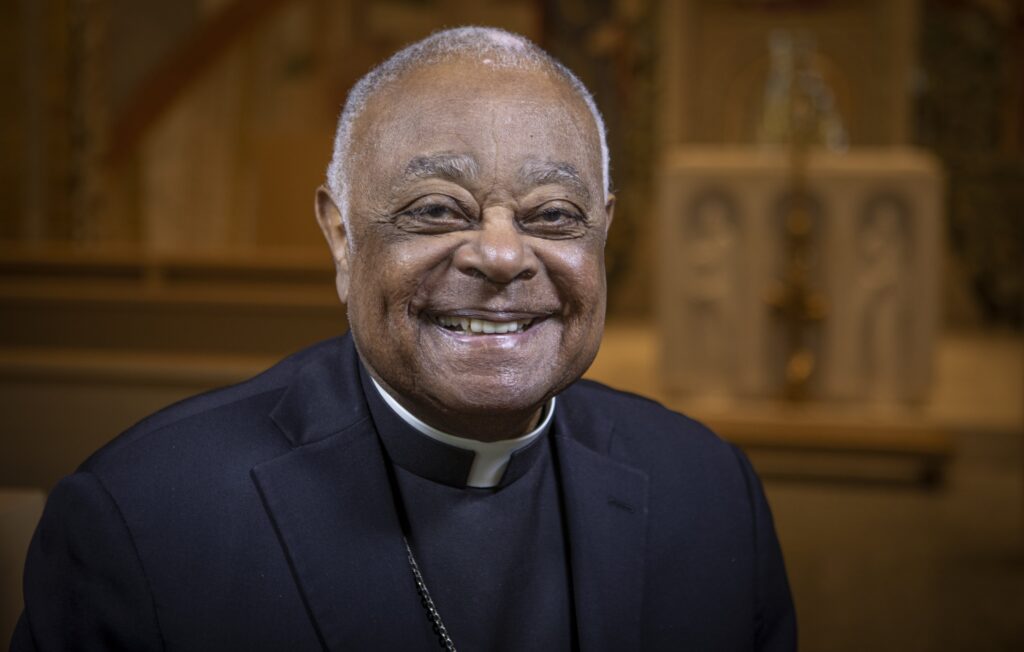
(OSV News) — For Black Catholic men, the path to the priesthood is marked by hope — and some very real challenges, say pastoral leaders who have their pulse on how to encourage African-American priestly vocations in the Catholic Church today.
“Being a Black Catholic priest is wonderful,” Father Michael Trail, pastor of St. Thomas the Apostle Parish in Chicago’s Hyde Park neighborhood, told OSV News. “We’re called to ministry where we are, but in many ways, we are ministering to the larger community. I’m mindful of the responsibility of providing a good, strong presence as a Black Catholic.”
Yet Black Catholic priests say that presence in the Church can often remain overlooked.
“I still have people asking me, ‘You’re a priest?'” Father Stephen Thorne, a consultant and special projects administrator for the Baltimore-based National Black Catholic Congress (NBCC) told OSV News. “In 2022, some are still pondering and puzzling over their image of priesthood.”
The Center for Applied Research in the Apostolate (CARA) at Georgetown University reported to the U.S. bishops that the class of 2022 ordinands had “relatively few” Black or African priests among their number.
CARA’s report stated just 4% of new Catholic priests were Black or African, while 60% were white, 22% Hispanic or Latino, and 11% Asian, Pacific Islander or Native Hawaiian.
Black Catholics have a centuries-long history in the U.S., but the percentage of priests is far lower than their share of the Catholic population. An estimated 250 Catholic priests in the U.S. are Black out of 37,000 diocesan and religious priests, or 0.67% of the total.
At present, the United States has only one Black cardinal: Cardinal Wilton D. Gregory, Archbishop of Washington (DC).
“Because the doors were closed to Black priests for so many years, we have repair work to do,” said Father Thorne.
Anti-Black racism within the U.S. church, however, has played a significant historical role in hindering the vocations of Black men to the Catholic priesthood. Due to racist opposition, the nation’s first publicly known Black priest, Venerable Father Augustus Tolton (1854-1897), had to complete seminary studies and be ordained in Rome before returning to the United States. U.S. Supreme Court justice Clarence Thomas also has recalled the racism he experienced as the impetus for leaving seminary in 1968, when a white seminarian openly praised the assassination of Martin Luther King Jr.
Part of the task is addressing “racial tension within seminaries” themselves, said Josephite Brother Cursey Calais, president of the National Black Catholic Seminarians Association (NBCSA), which currently has some 50 members from both diocesan and religious order institutions.
Black Catholic men can struggle with feeling at home among their seminary classmates, and the experience “can be discouraging,” even prompting some to abandon their studies, Brother Cursey told OSV News.
“That’s one wave we don’t even really see,” he said. “They enter, but they don’t finish their formation.”
Another hurdle is student loan debt, which disproportionately burdens Black Americans, even with federal grant aid, according to a June 2022 joint study by the Center for Law and Social Policy (CLASP) in Washington, D.C., and the National Consumer Law Center (NCLC) in Boston.
“I know some dioceses even require (applicants) to have at least a bachelor’s degree before entering the seminary,” said Brother Cursey.
However, neither dioceses nor religious communities can afford to absorb the cost of student debt, and aspirants generally must first pay off their financial obligations.
The Minnesota-based nonprofit Labouré Society offers financial mentorship and support for aspirants grappling with student debt, awarding some $6.4 million since 2003 to reduce payments on outstanding loans.
However, Black Americans on balance still face wage gaps and higher rates of unemployment “even at the same levels of educational attainment” with racial peers, stated the CLASP-NCLC report.
With clergy stretched thin across dioceses, many Black Catholic priests find themselves assigned to parishes without Black parishioners, making it harder for Black Catholic youth to identify priestly role models that look like them and inspire them to consider the vocation.
“I was born and raised in the Archdiocese of Detroit, and I didn’t meet a Black Catholic priest until I moved to Chicago for my undergraduate studies,” said Father Trail.
Father Thorne agreed.
“It’s so important, especially for young kids and for visual learners, to normalize these vocations and to be able to say, ‘That’s my priest,'” he said.
Fostering Black Catholic vocations to the priesthood requires cultivating relationships within families and between parishioners, and among peers in the clergy, said those interviewed.
“Vocations grow; they don’t just happen simultaneously, and you don’t go to the store to pick one out,” said Father Thorne. “Mine developed within my family, my parish, my school. That’s the work of the church.”
“Most discernment comes from the family first,” agreed Brother Cursey.
At the pastoral level, “we need to be more aware and intentional about youth and young adult ministry,” Father Thorne said.
Installing more Black Catholic priests at college campuses, particularly at historically Black colleges and universities, is also essential in strengthening vocations, he said, citing Howard University chaplain Father Robert Boxie III as one example.
Peer organizations such as the NBCC and the NBCSA are vital in “mentoring and giving support,” while helping to counter racism within the church, said Brother Cursey.
Father Trail said the wider “interdiocesan and interreligious” networks among Black Catholics provide crucial insight and affirmation.
“It’s nice to know I can call someone a couple of hours away when I’m having a (difficult) day, and they get it,” he said. “It’s someone who understands the context.”
Black Catholic priests are planning for future generations as well.
Father Trail said, “We are already looking to who’s going to walk with us, and someday replace us.”


